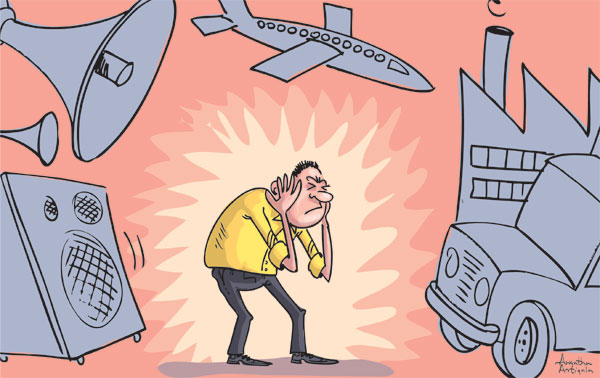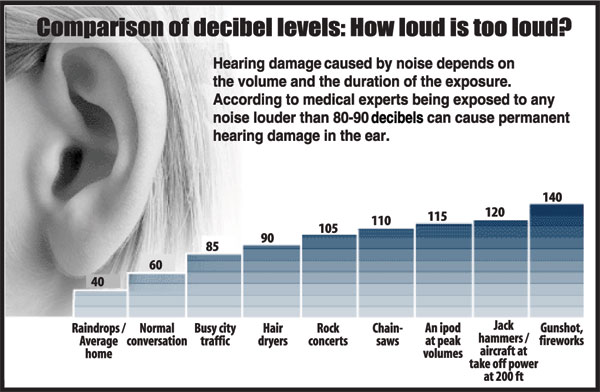Reply To:
Name - Reply Comment
Last Updated : 2024-04-20 00:00:00
 By Shihara Maduwage and Mandulee Mendis
By Shihara Maduwage and Mandulee Mendis 
.jpg) R. M. Kulasena, Deputy Director of the Air Quality and Noise Pollution Division of the Central Environmental Authority (CEA) said that the regulation submitted by the CEA to the Supreme Court in 2006, following the Supreme Court order in 2005 is still under review.
R. M. Kulasena, Deputy Director of the Air Quality and Noise Pollution Division of the Central Environmental Authority (CEA) said that the regulation submitted by the CEA to the Supreme Court in 2006, following the Supreme Court order in 2005 is still under review.
.jpg) ‘Must push for the enactment’
‘Must push for the enactment’.jpg) “Even a quick exposure to loud sound cause severe damage”
“Even a quick exposure to loud sound cause severe damage”.jpg) Prevention sound pollution is a human right: Environmental Lawyer
Prevention sound pollution is a human right: Environmental Lawyer.jpg)
.jpg) |
Mouth agape Monday, 01 July 2013 05:58 AM
Not many people have viewed/read this article, and until now no one has written a comment. I cannot add to what has already been printed here, since it is pretty comprehensive. I would like to just point out one example of massive noise pollution that occurs at Dehiwala junction when there are more buses than room for them to halt and still not block the moving traffic. I find it hard to believe the police are powerless to do something about the chaos and cacophony that result.
ranjan Monday, 01 July 2013 08:49 AM
Music in public transport must be stopped. We cannot be in peace and quiet inside the buses.
citizen perera Wednesday, 03 December 2014 06:44 PM
Nobody seems to care about the noise around us, whether it be the tooting of horns from mobile bakers, there seems to be a breakdown of law and order in the country, nobody cares about the common man. I live close to the ratmalana airport and the sound emanating from helicopters is unbearable, they permit the training schools to carry on regardless, disturbing people living in the vicinity right throughout the day.
D.M.V.P. Sunday, 15 December 2019 05:09 PM
This has become a big problem nowadays. I do not understand why people do not speak against this issue. I think the government should be strict in this matter. Otherwise, it will affect on the kids harmfully.

Add comment
Comments will be edited (grammar, spelling and slang) and authorized at the discretion of Daily Mirror online. The website also has the right not to publish selected comments.
Reply To:
Name - Reply Comment
On March 26, a couple arriving from Thailand was arrested with 88 live animal
According to villagers from Naula-Moragolla out of 105 families 80 can afford
Is the situation in Sri Lanka so grim that locals harbour hope that they coul
A recent post on social media revealed that three purple-faced langurs near t